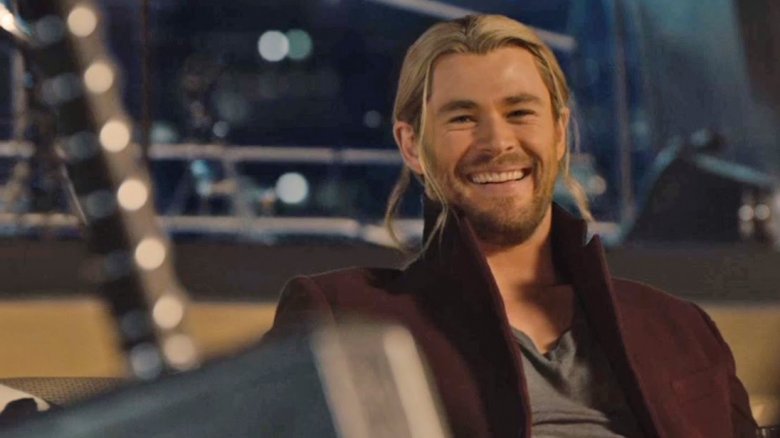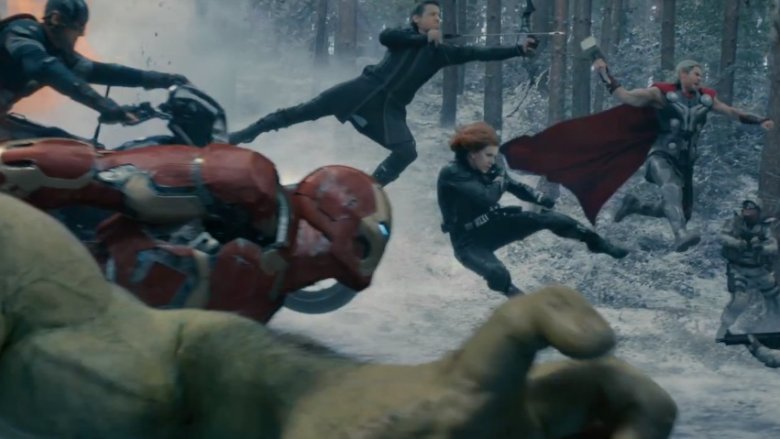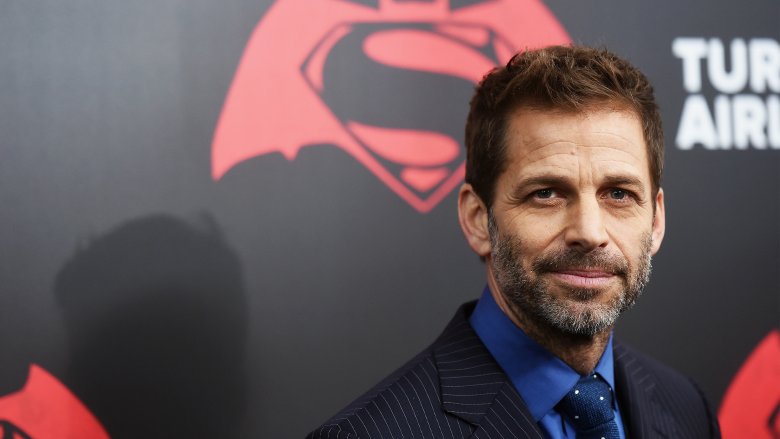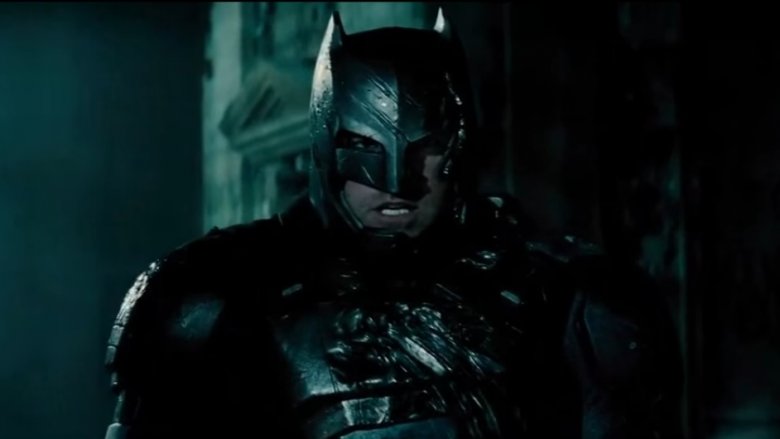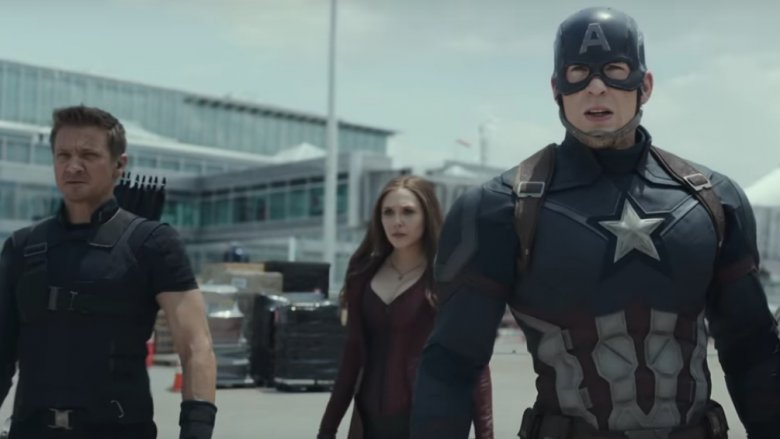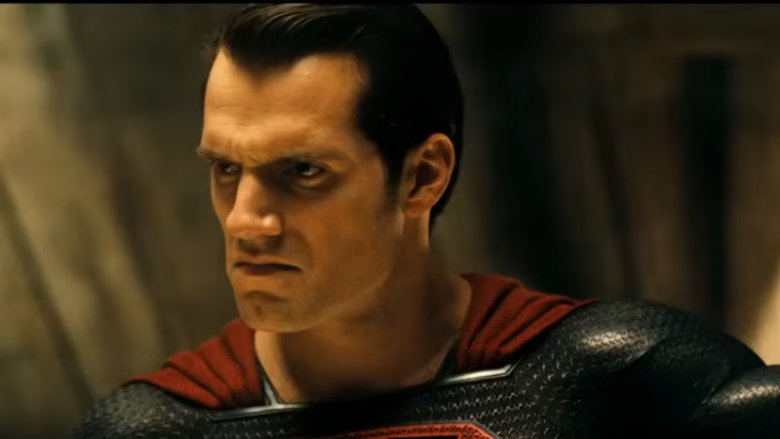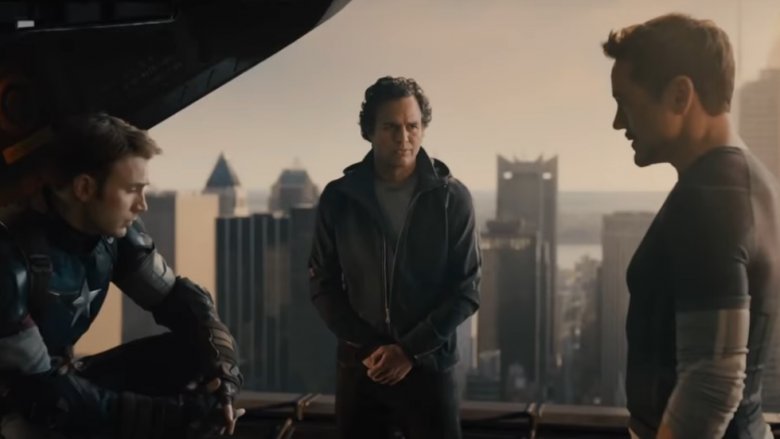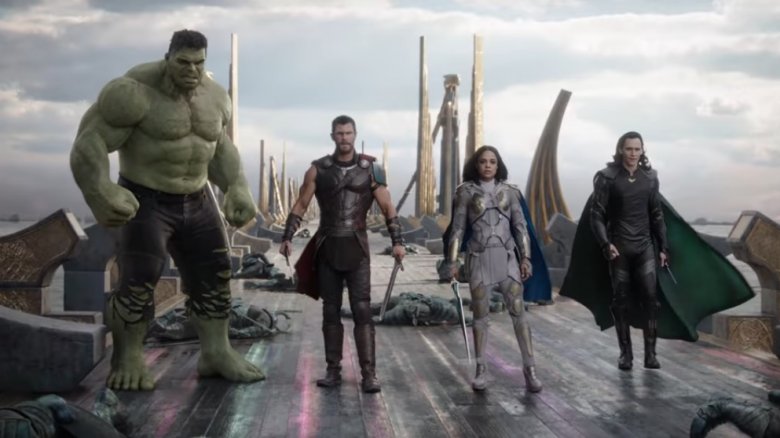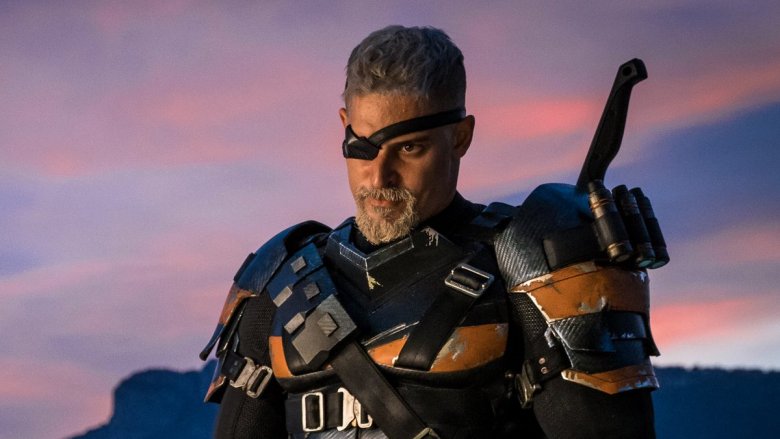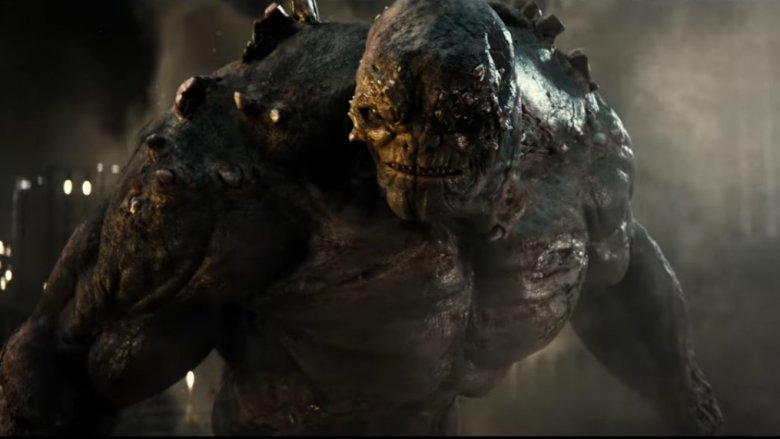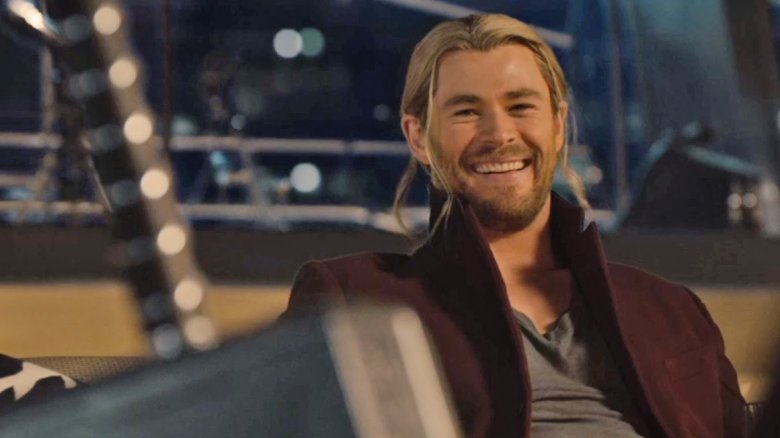What The MCU Gets Right That The DCEU Gets Wrong
It's no secret that Marvel's been the king of comic book movies ever since 2008's Iron Man. Springboarding from that success, most of Marvel's films have been both critically adored and uncontested at the box office. Heck, four of the company's more recent movies are among the fifteen highest-grossing films of all time. Needless to say, it seems like Marvel has comic book movie-making down to a science. On the other side of the fence are the DC comic book movies from Warner Bros., movies which haven't hit quite their stride. Stumbling critically and dwindling financially (with the exception of Wonder Woman), the five-movie-long DCEU hasn't been faring very well since its inception. This disparity in success begs the question: What does Marvel do that Warner Bros. doesn't? What does the MCU get right that the DCEU gets wrong?
Taking time to build a universe properly
A building is only as good as its foundation—a basic construction principle that Marvel understands and abides by. That's why the MCU took the long approach, releasing four solo films before activating its long-anticipated Avengers Initiative. Before 2012's Avengers, Marvel released two standalone Iron Man films as well as Thor and Captain America solo flicks. These four movies did wonders for developing their titular leads' primary motivations, strengths, and foibles, all of which helped audiences connect with those leads well before they assembled together in one movie. As a result, 2012's The Avengers was less "first day of school" and more "high school reunion," as if the audience was getting together with a bunch of old friends. That was the magic of Marvel's approach.
Conversely, WB tried to play catch-up with Marvel and ended up short-changing that whole foundational layer. Superman got a strong solo flick with Man of Steel, but after that WB started rushing their cash-cow properties. Superman's sequel turned into a weird Batman-meets-Superman-meets-Wonder Woman introduction that failed to do any of the three characters justice, Suicide Squad introduced a whole cast of one-note villains that seemed to have no relevance to WB's big Justice League plan, and then a spectacular Wonder Woman movie got plopped right in between SS and Justice League itself. In short, only Wonder Woman and Superman got the proper treatment, leaving other heroes like Batman, Cyborg, Flash, and Aquaman as underdeveloped characters in Justice League.
Knowing how much to trust the directors
Marvel knows exactly how much to trust its directors. The company essentially creates a big-picture rule book that directors need to adhere to, but, from there, the creative minds can play within the MCU sandbox as they see fit. This leads to critical and commercial successes like Captain America: Civil War, Ant-Man, Doctor Strange, and basically the rest of Marvel's filmography. All of these movies do contain particular plot points, some tonal constraints, and fall within the range of some general rules that Marvel's head honchos dictate, yet each flick feels distinctive because the directors are allowed to inject large doses of their own unique styles into the films. This is why the quirkily funny Ant-Man movie feels polar opposite to the first Thor film, which is almost Shakespearean in tone. Though Marvel quietly mandated a more comedic slant for their brand as of late, this general directorial sandbox philosophy remains front and center within the company's film productions.
WB, on the other hand, gave almost complete creative control to DCEU visionary Zack Snyder for two entire movies. After the first film received mostly negative reviews and the next one tanked on all fronts, WB would eventually yank away control from Snyder and, before he even had a chance to prove himself, do the same with newcomer David Ayer. This led to Snyder's Justice League and Ayer's Suicide Squad—two uneven, half-comedic fumbles that came about, at least in part, due to executive intervention.
The moral of the story: Marvel knows how far to let the leash go, whereas DC didn't know you had to put one on in the first place. By the time DC figured it out, assuming they have, the dog had gotten away from them.
Playing to the audience
There's a reason Marvel keeps its directors within certain parameters—it's lucrative. Back in 2008, Marvel stumbled upon a magical recipe of drama, comedy, and action that scored them high praise and big money, and they're not going to stop using that formula until the well runs dry. That's why Marvel's films play very similarly to one other tonally (and, in many cases, plot-wise as well), something we'll refer to as a "unified brand tone." This formula keeps the critics happy and money flowing, meaning executives demand its use.
Warner Bros. took a gamble and eschewed this assembly line mindset, opting to let director Zack Snyder fulfill his own artistic vision for a Superman story. This laissez-faire approach resulted in Man of Steel, a movie that, while bold and original, alienated a lot of people and divided critics. In short, it didn't prioritizing playing it safe, it was focused on expressing an idea—one decidedly contrary to Marvel's—that Snyder had for the character. Still, the movie made enough money that Warner Bros. kept supporting Snyder's creative freedom. Of course, when this same hands-off philosophy resulted in Batman v Superman: Dawn of Justice bombing critically and under-performing at the box office, Warner Bros. realized the error of its ways. This is why Marvel never targets its films toward an artistic vision—it targets them toward a ticket-buying audience with predictable expectations.
Utilizing a unified brand tone
Brand tone is really the central cog in Marvel's money-making machine. After they stumbled upon the perfect approach with 2008's Iron Man, it only made sense to build the remainder of the MCU around that general vibe, expanding on what worked while minimizing what didn't. This meant an emphasis on hero-driven stories and humor, while slightly downplaying the drama so that the stakes were never anything to get too worked up over. Just as we expected Iron Man to make it out of his first movie safe and sound, we now expect that of all the heroes. That's the fun of the MCU: it's not going to tear your heart out like Game of Thrones. When you go to a Marvel movie, you can safely assume you'll see some crazy sci-fi/fantasy comic book action, hear some pretty darn funny quips, and maybe even gasp at a dramatic moment or two, all while never having to worry about a character dying or plot beat getting too serious. It's a comedic adventure tone with slight doses of tension-filled drama thrown in for good measure, and so far it's helped every single MCU movie rake in big money and equally sizable praise from critics and fans alike.
Marvel dodges a massive pitfall of the DCEU
In stark contrast to the MCU, the DCEU has no singular brand tone. Man of Steel was a superhero epic rife with stakes, drama, big action, and heroism. Then Batman v Superman: Dawn of Justice came along and was essentially a mislabeled horror film, including plot points like Martha Kent being beaten up and taken hostage, a bleeding Kal-El begging to save his mom from a deranged maniac, and shortly thereafter the graphic impalement and death of Superman himself. To put BvS into perspective, this was a movie about a superhero with "hope" written on his chest that scared kids out of theaters.
As a result of that nightmare, Suicide Squad and Justice League were both hastily reworked to be more upbeat and friendly, though this decision by WB ended up turning both dramatic superhero epics into broken products. Each movie sported multiple tones all vying for control over each other, meaning neither film had a cohesive mood, resulting in critical backlash and bad word of mouth aplenty. This of course resulted in problems at the box office.
While it looks like WB might wise up now that they've produced Wonder Woman, a film that employed a more mature variant of Marvel's upbeat tone and was received well by virtually everyone, it remains to be seen whether they can emulate that approach for their other properties. All that's certain is that the scattered, decentralized approach the DCEU was using before definitely wasn't working out.
Staying faithful to the source material
Snyder's once-held creative freedom brings us to another point regarding what the MCU gets right. Marvel always goes with its most popular and mainstream interpretation of a character when translating one to the big screen. This means the Iron Man on the silver screen is a middle-aged billionaire playboy philanthropist and not the current Iron Man comics' former genius, now a confused, sociopathic teenage girl. Similarly, Captain America is a free-thinking, lovable patriot on screen, not the Cap that seems to relish the battle and surely a far cry from the comics' recent Nazi variant of the character. Choosing a superhero's most iconic persona over weird fringe interpretations from the comics is a vital part of why Marvel's recent films have been so well received. This is also why movies like Batman v Superman haven't gone down well with fans.
Snyder's take on DC's most iconic heroes, i.e., Superman and Batman, were interpretations that few casual fans were either familiar or comfortable with. In Man of Steel, Superman snapped Zod's neck and destroyed the commonly held perception that Superman valued the sanctity of life above all else. Then in BvS, Snyder made sure Batman also turned into a murderer by utilizing an interpretation of the Dark Knight not seen since his earliest days in comics. Both of these renditions took the heroes in grim and unfamiliar directions that upset lots of fans.
Thankfully, WB seems to have gone more mainstream for Wonder Woman and Justice League, but it's been a rough three-movie road getting there. At least we've finally got the Superman we know and love back.
Meaningfully connecting the movies' events and characters
Another big thing the MCU has going for it is the meaningful intertwining of its stories. Hulk has a legitimate reason to be buddied up with Thor in Thor: Ragnarok, Black Widow serves a real purpose in Captain America: The Winter Soldier, Falcon's cameo in Ant-Man practically makes the movie—you get the idea. These auxiliary Avengers jibe well with their titular companions because they're there to buttress the main plot, which in turn strengthens the movie's focus while also providing character building to all parties involved. Similarly, when a plot line from one MCU movie bleeds into another, it never feels like tying up the loose ends is a chore. Rather, it feels like a cinematic domino effect with real (and therefore engaging) consequences. The DCEU still doesn't quite understand this.
While the first few minutes of BvS capture the idea of interconnectivity perfectly, using the final moments of Man of Steel as the catalyst for BvS' plot, the movie then throws logic out the window and decides that Bruce Wayne hates Superman for only tangentially related reasons. Similarly, the weak C-list team of Suicide Squad members surely didn't feel like the anti-Justice League it seemed to want to be. And tying Lex Luthor to Steppenwolf in Justice League? Ugh. What few story connections there are between the DCEU movies feel like afterthoughts. WB needs to take a page from Marvel and map out its future movies in such a way that characters and plot threads can intermingle with more purpose and impact.
Keeping the TV universe in the fold
Speaking of interconnected universes, Marvel's is one to emulate. It extends beyond the silver screen to cover Marvel's television properties as well, meaning Agents of Shield, Inhumans, and the myriad Netflix series (Daredevil, Iron Fist, etc.) are all in the narrative fold alongside the likes of Tony Stark and Steve Rogers. Even if the TV and film universes rarely interact, the occasional character crossovers and completely aligned plots keep the MCU experience going long after you've left the theater. This strategy incorporates all of that smart cross-property universe building discussed here previously and shrinks it down to the size of your home's television.
Interestingly, WB has opted not to follow this approach. They've divided their film and TV universes, meaning Warners' polarizing DCEU has no effect on the successful DC shows airing on television (Flash, Arrow, Gotham, etc.). This is why we've got two Flashes and two Supermen, one of each bound exclusively to movies and the other two to TV. Is this confusing for casual audiences? Most likely. Another issue with WB's cross-media strategy is that the use of a character in the DCEU can hinder and restrict that character's ability to appear on TV in certain cases, such as with Deathstroke. This means Arrow will no longer be allowed to use one of its coolest villains.
While having two separate interpretations of DC's properties running simultaneously is a benefit unique to WB's side of the superhero fence, most would agree the MCU's truly interconnected universe is a far more exciting (and less problematic) prospect overall.
Not giving it all away in the promotional materials
There's nothing worse than spoiling a movie before it releases, something Marvel's been very careful about. All of Marvel's promotional content plays it very safe, which is why we never guessed Thor would (Spoilers!...) lose an eye at the end of Thor: Ragnarok or that Spidey was actually facing off against his crush's dad in Spider-Man: Homecoming. These shocking developments helped keep their respective movies feeling exciting and fresh, hence why Marvel made sure not to spill the beans early.
The DCEU hasn't been quite as careful in this department, and it's killed a lot of the DCEU's surprises. Remember the huge Doomsday spoiler debacle back when Batman v Superman's second trailer released? Yeah, that definitely qualified as a major reveal being plopped right into the heart of a film's marketing. And then there was Justice League, a movie with marketing that made sure not to include even a whiff of Superman ... until it did. After not including the son of Krypton in a single trailer (minus a very, very faint tease), WB's marketing department dropped the ball and put Kal-El front and center in one of the movie's posters. If they cared about not spoiling Superman's inclusion in the film so much that they didn't feature him in a single trailer, who was it that thought it'd be a good idea to reveal him via a far less impressive poster? Yikes. Hopefully Warner Bros. is more careful about this kind of thing going forward.
Projecting confidence
Of all the things Marvel and the MCU do right that WB and the DCEU just can't seem to nail, there's none more important than the former's projection of confidence. Barring the rare, occasionally testy, and isolated instances of internal developmental issues at Marvel, you almost never hear about drama from within their camp, resulting in the following pattern: an MCU movie gets announced, positive press junkets follow, fan hype skyrockets, the movie releases to rave reviews and billions of dollars' worth of revenue. For Marvel, all of this occurs without so much as a bump in the road. Meanwhile, each WB release is surrounded by internal drama leaks and constant critical cynicism based off of the company's bumpy track record. While Wonder Woman ended up beating the negative speculation and Man of Steel remains hotly debated, SS, BvS, and JL all became unfortunate statistics for WB.
When you couple this public image problem with Warner Bros.' painfully public course corrections for Suicide Squad and Justice League, the former of which looked like two entirely different movies thanks to its tonally inconsistent trailers, it shows a company that's not confident in its direction. Overhauling films out of fear is not a good look for any company, much less the one responsible for cinematic adaptations of global icons like Superman and Batman. Hopefully, WB can fix its internal issues and get the DCEU into competent and confident fighting shape, much as Marvel has for the MCU.
